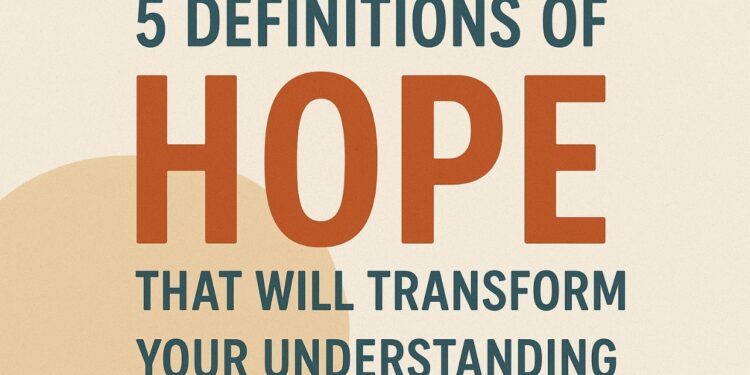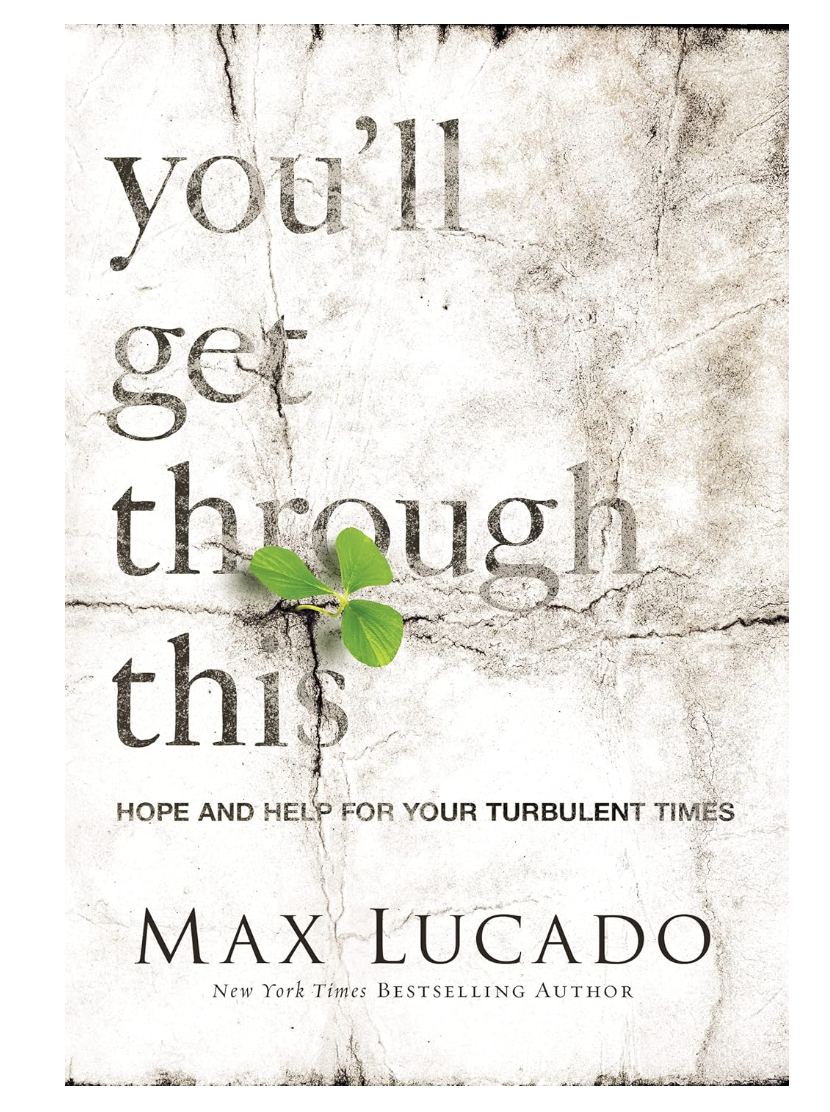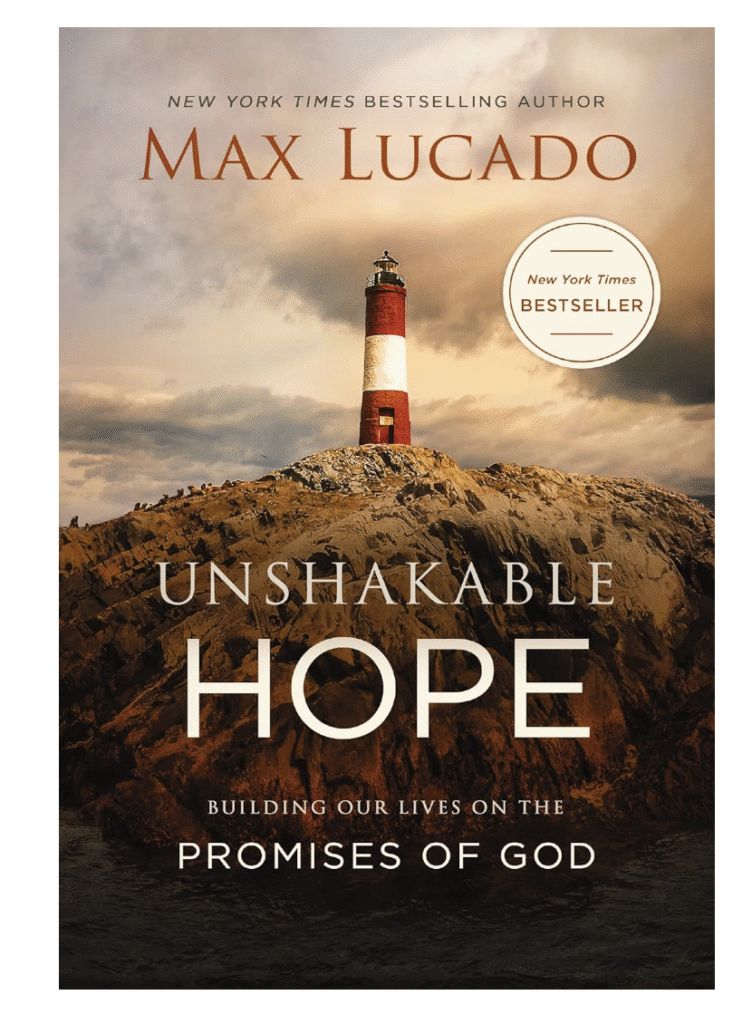No products in the cart.
5 Definitions Of Hope That Will Transform Your Understanding
This post contains paid and/or affiliate links. I make a small commission at no extra cost to you. Please see our Privacy Policy.
When life feels uncertain and the future seems unclear, where do you turn for hope? In our modern world, hope often gets reduced to mere optimism or wishful thinking. But the Bible presents a radically different picture of what true hope really means.
Biblical hope isn’t a fleeting emotion or desperate wish—it’s a confident expectation rooted in God’s character and promises. Let’s explore five powerful ways Scripture defines hope and how these ancient truths can anchor your soul today.
1. Hope as a Confident Expectation (Romans 8:24-25)
The Greek word for hope in the New Testament is “elpis,” which doesn’t mean “maybe” or “I wish.” It means confident expectation based on solid evidence.
Paul writes in Romans 8:24-25: “For in this hope we were saved. But hope that is seen is no hope at all. Who hopes for what they already have? But if we hope for what we do not yet have, we wait for it patiently.”
This isn’t blind optimism. Biblical hope rests on God’s proven track record of faithfulness. When Abraham hoped against hope (Romans 4:18), he wasn’t engaging in wishful thinking—he was banking on God’s promise because he knew God’s character.
What this means for you: Your hope doesn’t depend on circumstances looking good. It depends on knowing that God keeps His promises, even when you can’t see the outcome yet.
2. Hope as an Anchor for the Soul (Hebrews 6:19)
The writer of Hebrews gives us one of Scripture’s most vivid metaphors for hope: “We have this hope as an anchor for the soul, firm and secure.”
In ancient times, sailors would drop anchor not just to stop their ship, but to keep it steady during storms. The anchor wasn’t visible above water, but it provided invisible stability when waves threatened to dash the vessel against rocks.
This passage connects our hope to Jesus, who has gone before us “behind the curtain” into God’s presence. Our hope isn’t anchored in changing circumstances—it’s anchored in Christ’s unchanging work on our behalf.
What this means for you: When life’s storms rage around you, hope keeps you steady. It’s not about avoiding the storm—it’s about remaining secure while weathering it.
3. Hope as Future Glory (Romans 5:2)
Paul declares that “we boast in the hope of the glory of God.” This isn’t arrogance—it’s confidence in what God has promised to accomplish in and through His people.
Biblical hope has a strong future orientation. It recognizes that our present struggles aren’t the end of the story. The same passage continues: “Not only so, but we also glory in our sufferings, because we know that suffering produces perseverance; perseverance, character; and character, hope.”
This hope looks forward to the restoration of all things, when God will make everything new (Revelation 21:5). It’s hope that transcends temporary setbacks because it’s focused on eternal realities.
What this means for you: Your current struggles are developing something precious in you—a hope that won’t disappoint because it’s aimed at God’s ultimate purposes.
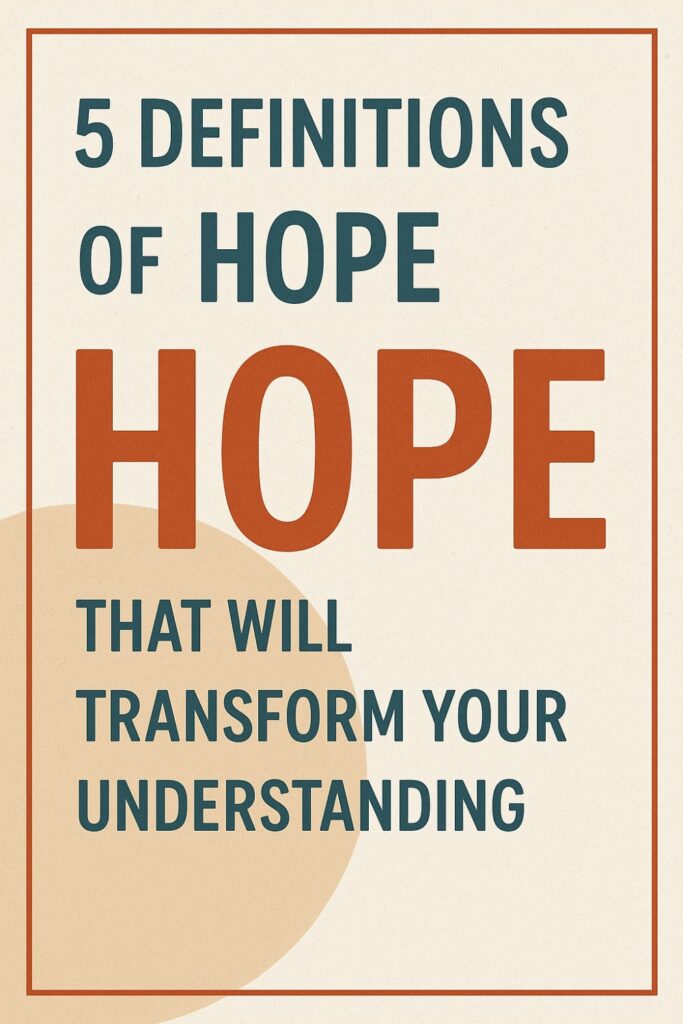
4. Hope as Living Hope (1 Peter 1:3)
Peter introduces a unique phrase: “living hope.” He writes, “Praise be to the God and Father of our Lord Jesus Christ! In his great mercy he has given us new birth into a living hope through the resurrection of Jesus Christ from the dead.”
What makes hope “living”? Unlike dead hope that fades with time or circumstances, living hope grows stronger through testing. It’s alive because it’s connected to the living Christ who conquered death itself.
This living hope is tied directly to the resurrection—the ultimate proof that God can bring life from death, beauty from ashes, and victory from apparent defeat.
What this means for you: Your hope isn’t static or fragile. It’s dynamic and resilient, drawing life from the same power that raised Jesus from the dead.
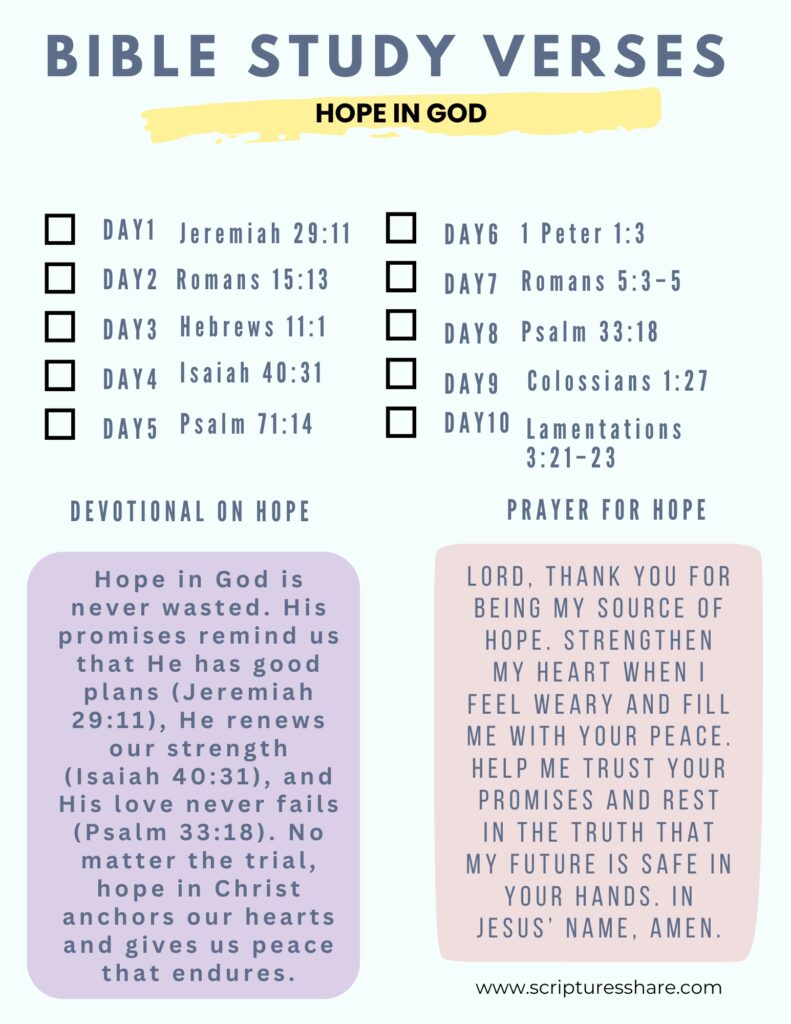
5. Hope as Patient Endurance (Romans 15:4)
Paul connects hope with patient endurance: “For everything that was written in the past was written to teach us, so that through the endurance taught in the Scriptures and the encouragement they provide we might have hope.”
Biblical hope doesn’t demand immediate results. It understands that God’s timing often differs from our preferences. This hope enables us to persist when quick fixes aren’t available and to trust when we can’t trace God’s hand.
The stories throughout Scripture—from Joseph’s years in prison to David’s time in the wilderness—teach us that hope often involves waiting. But it’s not passive waiting. It’s active trust that continues moving forward even when the path isn’t clear.
What this means for you: Hope gives you strength to keep going when you can’t see immediate results. It transforms waiting from mere endurance into purposeful preparation.
Why Biblical Hope Matters Today
In a world filled with anxiety about the future, economic uncertainty, health concerns, and relational challenges, biblical hope offers something our culture desperately needs: unshakeable confidence based on unchanging truth.
This hope doesn’t promise that life will be easy or that all your dreams will come true exactly as you envision them. Instead, it promises something better: that God is working all things together for good for those who love Him (Romans 8:28), and that your story isn’t over yet.
Living with Biblical Hope
Understanding these five biblical definitions of hope can transform how you face each day:
- Remember God’s faithfulness when circumstances look impossible
- Anchor your soul in Christ’s completed work, not changing situations
- Look forward to God’s ultimate restoration of all things
- Draw strength from the living Christ who conquered death
- Persist patiently knowing that God’s timing is perfect

The Bible’s vision of hope isn’t naive optimism or desperate wishful thinking. It’s robust confidence in a God who has proven Himself faithful throughout history and who promises to complete the good work He began in you.
When you understand hope the way Scripture presents it, you discover that it’s not just a nice feeling—it’s a life-transforming reality that can sustain you through any storm.
Looking for more biblical insights? Subscribe to our newsletter for weekly encouragement rooted in Scripture’s timeless truths.


